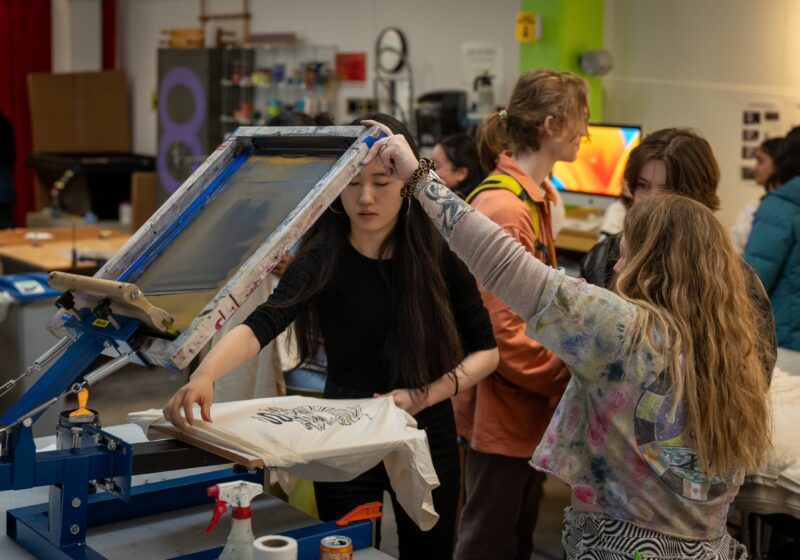Pulitzer Prize—winning journalist and author David Cay Johnston spoke about investigative journalism under the Trump administration and about press freedoms worldwide at an event hosted by College Democrats last Wednesday.
“There is serious attempt by Trump’s administration to quash the American investigative journalism,” said Johnston, who came to public attention last year for releasing the partial 2005 tax returns of President Trump.
He called Trump’s administration one of the most corrupt in American history, comparing it to a “criminal gang.”
Johnston argued that Trump spent his entire career bribing people, hiding documents, refusing to pay taxes and employees, and exploiting undocumented workers. Trump has criticized Johnston in tweets and called NBC News, on which he appeared to discuss the tax returns, fake news.
Johnston began his talk by saying the First Amendment gives reporters the freedom to address both the “official version of events” and the “official criticisms of the official version of events.”
Investigative journalists do not only report things as they are, he said, but also try to understand how things work and why they work that way.
“In many cases they are things that lie in front of you, but nobody pays attention to, because they are not trained,” said Johnston.
But these press liberties are not found everywhere.
“There was a popular joke during the Cold War,” said Johnston. “‘There is no true in Pravda and no news in Vesty.’”
Pravda and Vesty were the two biggest newspapers in the Union government, with “pravda” meaning “truth” and “vesty” meaning news.
Johnston explained that the difference between papers like that and papers like The New York Times is that Pravda and Vesty deliver only “the official versions of events,” while The New York Times delivers this and the “official criticisms of the official version of events.”
The speaker also discussed other countries of the world where investigative journalism is near impossible.
“In the Saudi Arabia, it’s even worse,” Johnston said. “All sources of truth are controlled by the government.”
Johnston described a specific incident involving the burning of girls and female teachers in a school building in that country.
According to Johnston, religious police stopped them from leaving the building because they were not wearing the proper Islamic attire. The tragedy was reported by American newspapers but not by Saudi Arabian newspapers.
Toward the end of the event, students asked Johnston questions. Some discussed the topic of getting people to care about investigative journalism while others questioned how we should act in the Trump era.
Johnston emphasized the need to engage in politics to differentiate between fact and fiction as well the need to vote.
“People must be committed to the idea that it is not the president nor the administration who owns the country, but it is the people who own the country,” he said.
He said he hopes that despite the threat imposed on reporters, the liberty of investigative journalism in United States will withstand.




